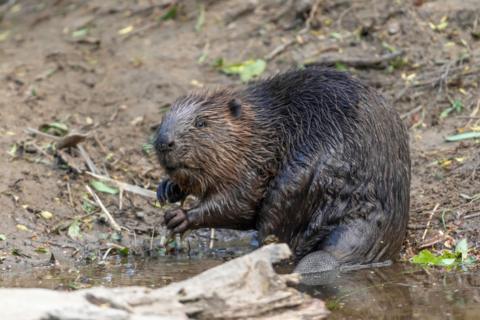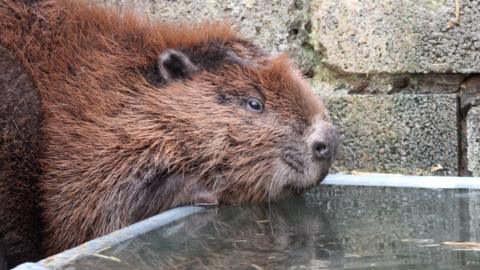It's thought that about five hundred beavers already live in England, some in the wild and others in enclosures. Many more are in Scotland, where wild releases are already permitted.
Conservationists call beavers "ecosystem engineers" because of how they redesign where they live. The dams they build slow the flow of rivers and streams and create habitats where other creatures can thrive. They've also been credited with reducing flooding further downstream.
"This is an incredibly exciting moment, a real landmark for nature recovery in England," Tony Juniper, the head of Natural England, told me next to a beaver dam in Devon.
"We're bringing back a missing animal that's been absent for centuries, and an animal that we know will bring huge benefits for the rest of the wildlife that is already depleted across much of England," he says.
The beavers will be released under a licensing system overseen by Natural England.
It says long term plans will need to be in place to avoid impacts on farming, food production and infrastructure.
That's something the National Farmers Union say is vital. It wants culling beavers to be an option if they prove disruptive.
NFU Deputy President David Exwood said that while beavers could provide certain benefits, "we are concerned about the negative impacts beavers can have on productive farmland, as well as the management requirements, costs and risks involved".
"Beavers can flood and waterlog fields, feed on agricultural crops like maize, as well as damage and fell trees such as cricket bat willow."

